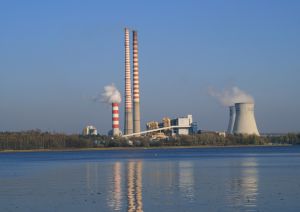Prime Minister Julia Gillard's long-awaited $23 a tonne tax on carbon dioxide emissions will change the cost of producing energy, and the goods that use energy in production.
Most people understandably think the new tax will prompt them, the consumer, to switch products based on the relative prices of different sources of energy.
If electricity from coal becomes more expensive than electricity from sunlight, for example, then we will respond by choosing the cheaper option of solar power.
But consumers are unlikely to drive the change.
Rather, it will be businesses who drive the change as they produce and use energy in the way that maximises profits.
There is no guarantee that a business generating electricity at a lower cost than its competitor will pass the saving on to the consumer.
In fact, it is unlikely, just as Australia's most efficient gold miners don't sell gold at a lower cost than their high-cost competitors.
There is only one market price for gold, just the same as there is only one market price for bananas or motor vehicles or shoes of a given quality and status.
They key is investment.
Investors funnel their capital into the most profitable gold mines, farmers plant their banana trees on the most productive land, and vehicle manufacturers prefer to build the cars that make them the most profit.
And investors in electricity generation and other industries affected by the carbon tax will do just the same.
The government's climate plan says the tax will create economic incentives for businesses to reduce their emissions of greenhouse gases, and to do that in the most cost-effective way.
"It will also make lower-polluting technologies, especially clean energy, more competitive by boosting investment in, and take-up of, these technologies," the government said in the plan.
In other words, money will be invested in the more profitable power plants and factories.
And the higher the carbon tax goes, the more investment will flow into less carbon intensive businesses.
Some low-cost producers of energy may be crazy enough, or altruistic enough, to hand their excess profits to consumers.
But most should be sensible enough to hang onto the cash - perhaps grabbing market share by undercutting their high-cost competitors by the slimmest of margins - and attract investors into their more profitable enterprises.
That's how the transformation to a low-carbon economy will come about.
For households, the electricity coming out of the wall will be no different.
And the products made using that electricity will look much the same too.
The government's plan pays some lip-service to the role of consumers in that process.
"After the carbon price is introduced, households can continue to consume the same things, but the carbon price means that they will have a financial incentive to consider alternatives," the government said in the plan.
But that price signal to consumers is likely to be fairly weak.



-160x160-state_article-rel-cat.png)



-160x160-state_article-rel-cat.png)










-160x160-state_article-rel-cat.png)





